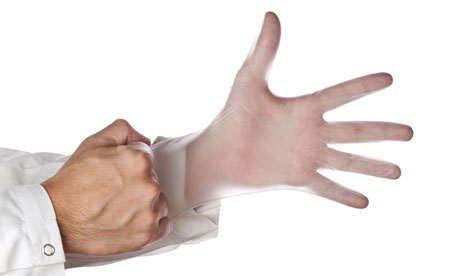
Imagine, for a moment, that your job title is "colon hygienist". You would have to explain to people that your job involves inserting a tube into somebody's rectum and swishing their colon out with water. It is claimed that flushing out "toxins" and faecal matter during a colonic irrigation, or hydrotherapy, boosts bowel function, improves the skin, and generally makes you feel lighter and brighter. Except, according to a new review published in the American Journal of Family Practice, none of this has been proven.
Researchers at Georgetown University School of Medicine reviewed 20 studies published during the past 10 years and concluded there was little evidence of benefits of colon cleansing (whether by hydrotherapy, or by ingesting strong laxatives). What they did find, however, was a whole range of side-effects, including abdominal pain, nausea, dehydration, electrolyte imbalance (minerals in the blood that help regulate, among other things, neurological function) and kidney and liver failure.
"From what we gathered, this is not a benign process," says Dr Ranit Mishori, the lead author. "It can be quite dangerous. You are inserting tubes and using up to 60 litres of fluid. This could cause punctures in the colon."
Colonic irrigation had been used in the 19th century in hospitals, with some doctors believing that a build-up of toxic undigested waste caused disease (it is thought colon cleansing dates back to ancient Greece and Egypt). But in the early 20th century, because these claims hadn't been proven, the practice fell out of favour. Until the 1990s, that is, when alternative health spas started offering it, and the process gained some high-profile advocates such as Princess Diana.
Those who have had colonic irrigation have reported passing revolting bits of matter, from strings of mucus to rubbery nuggets. "It's just faeces. It would have come out anyway," says Mishori. "The body is designed to get rid of toxins, in urine and faeces. There is no need to assist it."

